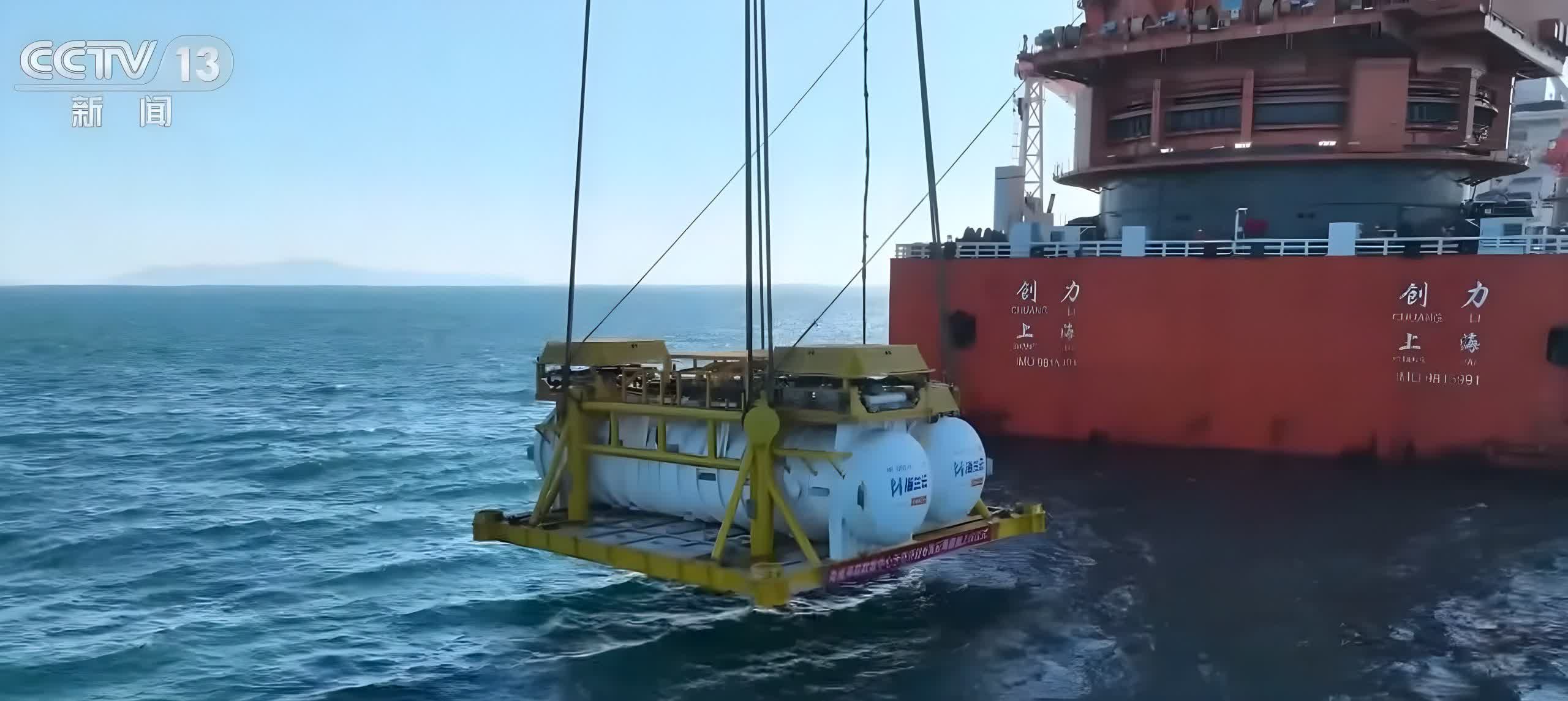In brief: China has sunk the first modules of what it says is the world's first underwater commercial data center. These are the first of more than 100 cylindrical modules that will be lowered around 115 feet onto the bottom of the sea, a journey that takes three hours to complete. The structure will ultimately offer the performance of around 60,000 computers working in unison.

The Hainan Undersea Data Center Demonstration Development Project involves more than 100 units, which will span almost 68,000 square meters, being sunk off the Hainan island. Each module is designed with a lifespan of 25 years and weighs 1,300 tons.
No details about the hardware have been released, though CCTV says each data storage unit can process more than four million high-definition images in 30 seconds.
Placing data centers underwater is an expensive and difficult process, but it comes with plenty of environmental advantages. In addition to not taking up 68,000 square meters of land, the cold seawater will save 122 million kilowatt-hours of electricity and 105,000 tons of freshwater annually. The location also provides a dust-free, oxygen-free environment that can protect electronics and help reduce faults.
As reported by Global China Daily, Pu Ding, the general manager of the UDC Hainan pilot development project, said that the completed data center would be between 40% and 60% more power efficient than those built on land.
The center uses sea cables to connect the modules to a shore station, where subsystems such as power distribution and networking equipment are located. It's from here that staff can watch the modules and ensure everything is working okay using an underwater monitoring system.
Announced in the first quarter of 2021, the Hainan project has an estimated completion date of Q2 2025. Not surprisingly, its total cost is a high one: $879 million.
This isn't the first time a data center has been placed underwater. Microsoft did the same thing with Project Natick, which was launched in 2014 and first trialled a year later off the coast of California. The company also submerged a data center off the coast of Scotland in 2018, ending that experiment two years later. It found the underwater data center to be eight times more reliable than a duplicate setup deployed on land.
https://www.techspot.com/news/101064-china-sinks-first-modules-68000-square-foot-underwater.html

